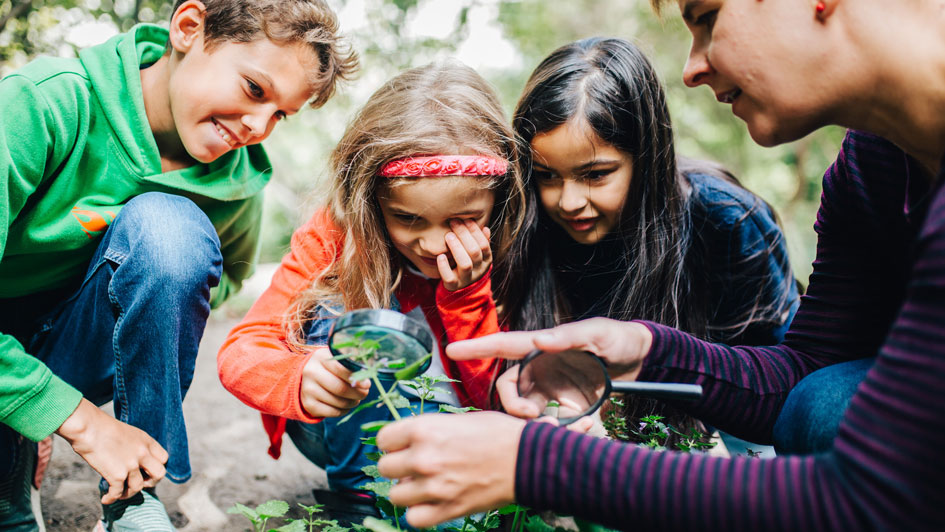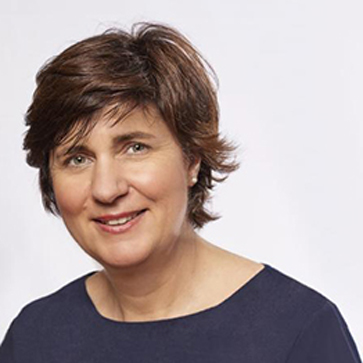Little Scientists Foundation
Initiative for early childhood STEM education

In a tech-driven world, responsible engagement in society requires an understanding of scientific and technological interrelationships. The earlier children learn these skills and abilities, the more opportunities will be available to them in their future. This is the principle behind Little Scientists Foundation, a national German foundation that includes Siemens Stiftung among its earliest supporters.
Project
Discovering the world with an inquiring mind and shaping the future
The nonprofit Little Scientists Foundation (Stiftung Kleine Forscher) focuses on early childhood education in STEM subjects (science, technology, engineering, mathematics) and sustainable development in education. Their goal is to prepare young children across Germany for the future and to ensure that their actions have long-lasting impact. Working with local network partners, the foundation seeks to make regular interaction with STEM subjects a permanent part of preschool, day care, and primary school in Germany.
Seminars for educators
With a nation-wide continuing education program, the foundation supports educators and teachers in their efforts to unlock the inquisitive nature of girls and boys aged three to ten and provide qualified guidance as children make discoveries.
Inquiry-based learning sites
The initiative helps education institutions establish themselves as permanent inquiry-based learning sites. Certified “Haus der kleinen Forscher” Foundation sites are recognized as positive learning environments for children.
Excellent for seal of approval
The non-profit agency PHINEO has honored the Little Scientists Foundation as an “effective project and high-performance organization” in MINT education. The seal of approval was awarded on June 12, 2018 under the auspices of the National MINT Forum.
«Early childhood education lays the foundation for a self-determined life in a complex world and gives all children the chance to develop to their full potential, regardless of their background.»
Dr. Tobias Ernst, Chairperson of the Little Scientists Foundation
Our role
Strengthening STEM education together
As a founding and sponsoring member of “Haus der kleinen Forscher” Foundation, Siemens Stiftung actively supports efforts to provide children with age-appropriate contact with science, math, and technology phenomena and concepts. We also seek to make sustainable improvements to the educational opportunities available to children in these subjects. Training seminars for education professionals at preschools and elementary schools are a fundamental part of these efforts.
Research: Does collaborative experimentation contribute to linguistic development?
We always strive to stay at the forefront of new developments in early childhood education and to evaluate new findings. At the end of 2013, we joined Little Scientists Foundation and Baden-Württemberg Stiftung on a three-year study, EASI-Science-L (Early Steps into Science and Literacy), which analyzed the effects of early childhood science education. The study focused specifically on the relationship between linguistic ability and the acquisition of science knowledge, as well as science training for educators from other disciplines. The results were published in August 2017 and indicate that science education has a positive effect on the linguistic abilities of children.
Knowledge transfer: International perspectives on STEM education
There are many national initiatives and programs that pursue early STEM education in countries around the world. What has largely been missing, however, is international exchange among stakeholders in early childhood education and scholastic learning. In a globalized world, large challenges can only be addressed through international cooperation. That includes sharing and discussing concepts and practices pertaining to early childhood education. Together with Little Scientists Foundation, we created the International Dialogue on STEM Education (IDoS) with the purpose of learning from others, providing inspiration, and considering new ideas.
«The International Dialogue on STEM Education creates an innovation ecosystem in early childhood STEM education»
Dr. Barbara Filtzinger, Head of the Education Working Area and board member at Little Scientists Foundation

Partners
Strong partners in an extensive network
Contact
Would you like to work with us? Or do you have any questions?
Project manager at Siemens Stiftung
Dr. Barbara Filtzinger
barbara.filtzinger@siemens-stiftung.org
+49 89 540487 0
Managing director Little Scientists Foundation
Dr. Tobias Ernst
info@stiftung-kinder-forschen.de


